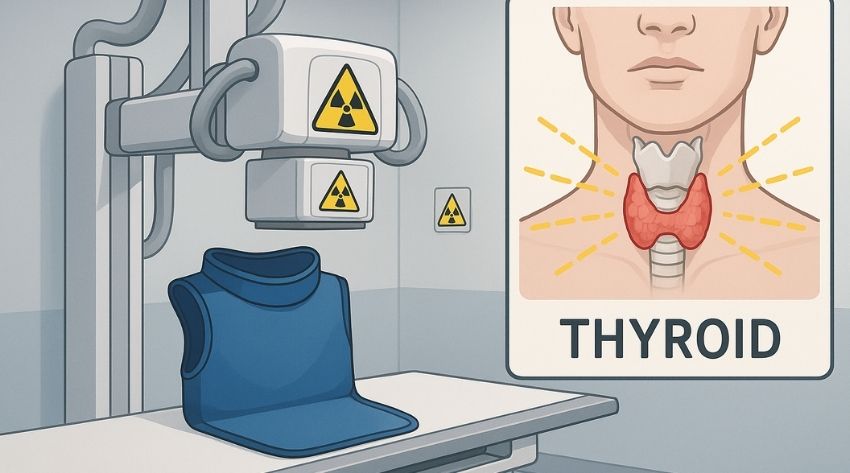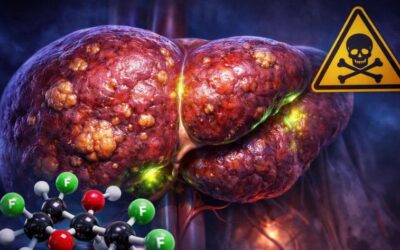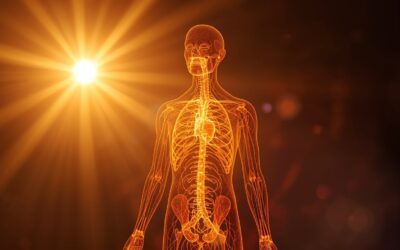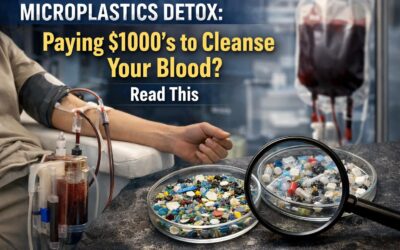A Wake-Up Call for Thyroid Gland Health
Thyroid cancer is increasing faster than many realize—especially in younger adults, particularly women. That tiny gland at the base of your neck, the thyroid, is a butterfly shaped gland located in the neck just below the Adam’s apple. The thyroid cartilage, a prominent anatomical landmark, sits just above the thyroid gland in the front part of the neck. The thyroid handles more than just your metabolism: energy, mood, hormones, and much more. When it’s under assault, the effects ripple across your whole body. Thyroid hormones affect how your body uses energy, how organs function, and regulate vital processes such as breathing, heart rate, and mood. Thyroid hormone production also plays a key role in maintaining normal blood pressure.
Thyroid disease refers to a broad range of disorders affecting the thyroid gland, including conditions such as hyperthyroidism, hypothyroidism, and thyroid cancer. While genetics play a part, the sharp rise in cases isn’t explained by genes alone.
One major factor that’s getting more attention is the cumulative damage from medical imaging—the frequent CT scans, mammograms, dental X-rays, fluoroscopy, etc.—which expose the thyroid to ionizing radiation. Over time, this exposure can lead to cellular damage and DNA mutations, raising the risk of nodules and cancer.
Thyroid diseases, including but not limited to cancer, can result from thyroid dysfunction and have a significant impact on overall health. Thyroid enlargement, often called a goiter, refers to an increase in the size of the thyroid gland and can be caused by factors such as iodine deficiency or hormone imbalances. Sometimes, the thyroid produces and releases more thyroid hormones than necessary, which can disrupt body functions and lead to conditions like hyperthyroidism. Thyroid cancer starts in the cells of the thyroid gland, often due to mutations caused by radiation or other factors.
Why the Thyroid Is So Fragile
The thyroid is especially sensitive to even small doses of radiation. Key functions like T4 → T3 hormone conversion, healthy cell turnover, and maintaining hormone balance can be disrupted. Radiation exposure can also affect immune system cells within the thyroid, potentially leading to inflammation or other immune responses.
Common exposure sources include:
- Dental X-rays (often done without thyroid shielding)
- Chest CT scans (much higher radiation than standard X-rays)
- Mammograms (lower dose per scan, but repeated exposures matter)
- Fluoroscopic procedures and other imaging tools
Repeated or excessive exposure to radiation can contribute to the development of an enlarged thyroid gland, also known as a goiter.
It’s not each individual scan that’s the problem—it’s living in a world where these exposures stack up over time.
Women at Higher Risk
Women are 3-4× more likely to develop thyroid cancer. Why?
- Hormonal factors (estrogen, progesterone) make thyroid cells more vulnerable.
- Women are also more likely to experience conditions involving excess thyroid hormones, which can further increase their risk.
- Women typically undergo more imaging: mammograms, fertility scans, dental work.
- Autoimmune vulnerability is greater—conditions like Hashimoto’s reduce resilience.
Add it together, and you get a compound effect: more exposure + more susceptibility + less protective buffer.
Types of Thyroid Cancer
Thyroid cancer isn’t just one disease—it’s a group of cancers that develop in the thyroid gland, that small, butterfly-shaped organ in your neck responsible for regulating metabolism, heart rate, blood pressure, and temperature. Each type behaves differently and requires its own treatment approach.
- Papillary thyroid cancer is the most common, making up about 80% of cases. It tends to grow slowly and often appears as a small lump in the thyroid.
- Follicular thyroid cancer accounts for about 10%. Unlike papillary, it has a greater tendency to spread to the lungs or bones.
- Medullary thyroid cancer is rare (around 3%). It begins in C cells, which produce calcitonin—a hormone that helps regulate calcium.
- Anaplastic thyroid cancer is the rarest (about 1%), but also the most aggressive. It grows and spreads quickly, making early detection critical.
Why Early Detection Matters
Catching thyroid cancer early offers the best chance for effective treatment. Symptoms can be subtle: a lump in the neck, changes in voice, or difficulty swallowing. These are easy to overlook, which is why regular checkups and paying attention to small changes are so important. However too many CT scans or imaging could actually make the thyroid gland more prone to cancer and suboptimal function.
The Bigger Picture: Thyroid and the Endocrine System
The thyroid is not an isolated organ—it’s a central player in the endocrine system. It produces T3 and T4 hormones, which control metabolism, energy, and growth. The pituitary gland, through TSH, tells the thyroid when to produce these hormones.
When cancer disrupts this system, hormone production becomes erratic, leading to weight changes, fatigue, and cardiovascular issues. Because the thyroid’s influence is so broad, any disruption has system-wide effects, making careful monitoring and treatment essential.
Thyroid Cancer Over-Detection and Its Costs
Because imaging is more common, tiny nodules are found incidentally more often. Many of these are detected in the early stages, when they may not yet cause symptoms. Many of these might never cause harm—but once a thyroid nodule is discovered, even if it is asymptomatic, it often leads down a path of biopsies, surgeries, and lifetime medication. Early detection is crucial, but over-diagnosis and treatment carry their own physical, emotional, and financial cost.
The Role of Radiation Therapy in Thyroid Cancer
Radiation therapy is often used after thyroid surgery to eliminate any remaining thyroid tissue or hidden cancer cells. If cancer has spread to lymph nodes or nearby tissues, radiation helps target those areas too. However, there are risks to radiation therapy, as it can cause further damage to healthy cells in the body.
There are two main approaches:
- External beam radiation directs high-energy rays at specific cancer sites.
- Radioactive iodine therapy (RAI) uses iodine that thyroid cells naturally absorb, delivering radiation directly to them while sparing healthy tissue.
Your doctor will decide which method—or combination—is best based on the type and stage of thyroid cancer.
Steps to Reduce Your Risk
You can’t stop all imaging, and many tests are lifesaving. But you can take steps to protect your thyroid and reduce your risk:
- Always ask if there’s a safer alternative (e.g. ultrasound)
- Request thyroid shielding during necessary imaging
- Keep a record of your imaging history to avoid unnecessary repeats
- Prioritize nutrition, minerals, and support for detoxification. Addressing iodine deficiency is crucial for thyroid health and can help prevent related disorders.
- In the event of a nuclear accident, potassium iodide may be used as a preventive medication to protect the thyroid from radiation exposure, especially for those living near nuclear power plants.
- Keep inflammation low, support your gut, protect against oxidative stress
While there are no guaranteed ways to prevent thyroid cancer, these steps can help reduce risk, particularly for individuals at higher risk.
Failing to take these protective steps may lead to an increased risk of thyroid dysfunction or cancer.
Supplement Support: What Really Helps
Radiation exposure does more than damage DNA—it produces oxidative stress, sets off inflammation, and creates opportunities for halogens (like fluoride, chlorine, bromine) and heavy metals to interfere with your thyroid. To protect your thyroid, you need tools that:
- Provide clean, usable iodine
- Support healthy conversion of thyroid hormones
- Support liver and gut detoxification
- Supply minerals and compounds that support cell repair
Maintaining the health of both the thyroid and parathyroid glands is important for overall endocrine balance, including proper calcium regulation. The thyroid gland produces not only T3 and T4 but also the hormone calcitonin, which helps regulate calcium levels in the blood. Imbalances in calcium regulation can sometimes lead to complications such as kidney stones. Some supplements are also designed to support the function and health of thyroid follicular cells, which are essential for hormone production.
Here’s how the formulas from Accelerated Health Products help in that regard. You can also request your FREE supplement protocol tailored to your health goals.
The Thyroid Stack: Ingredients & How They Protect
Acceleradine® Iodine
What it is now: A scalar-charged 2% tincture of singlet iodine atoms (I-) in non-GMO grain alcohol.
How it may help protect your thyroid:
- Highly bioavailable single atom iodine, which your thyroid can use directly, without needing complex conversion.
- Because of its purity (tested radiation-free), it helps refill iodine reserves without adding contaminants.
- Helps displace halogens and heavy metals that often block thyroid receptor sites.
Accelerated Thyroid®
What it is: A 3-in-1 thyroid formula combining ancient herbs, glandular support, adaptogens, and cofactors. Key ingredients are Kanchnara Guggulu, freeze-dried grass fed thyroid glandular, L-Tyrosine, and L-Threonine.
How the ingredients may help with imaging damage & thyroid resilience:
- Supports both T4 to T3 conversion (active hormone) because of the glandular and amino acid precursors.
- Provides herbal support (guggul / kanchnara) that have been used traditionally to reduce thyroid nodules, help detox halogens, and support metabolic rate.
- Helps mitigate effects of fatty liver, which impairs hormone conversion.
Accelerated Liver Care®
What it is: A comprehensive liver support formula featuring Kukti, Phyllanthus, TUDCA, Eclipta, Jin Qian Cao, Bupleurum, Milk Thistle, Pau Pereira, Thai Black Ginger, Skullcap, Artemisia capillaris, and Andrographis.
How the ingredients may help protect your thyroid:
- Enhances bile flow with botanicals and TUDCA, improving fat digestion and hormone clearance.
- Supports liver detoxification pathways that process hormones, halogens, and environmental toxins.
- Reduces liver congestion, which directly improves thyroid hormone conversion from T4 to T3.
- Provides antioxidant and anti-inflammatory support, protecting both thyroid tissue and the endocrine system.
Accelerated Cellular Detox® Powder
What it is: A blend of Micronized Zeolite, Diatomaceous Earth, Activated Charcoal, Triphala, Slippery Elm, and Chitosan—with scalar frequency enhancement.
How the ingredients may support protection:
- Zeolite, activated charcoal, and chitosan bind heavy metals, radionuclides, and other toxic agents from radiation plus environmental exposure.
- Triphala and Slippery Elm support gut health and reduce inflammation in the digestive tract, which is central for detox and for letting the thyroid signals pass through.
- Clean gut + less chemical load = less burden on the liver, fewer blockers of thyroid conversion.
The Natural Protection Plan
When you put these together, you build a comprehensive strategy:
- Use Acceleradine Iodine to refill iodine, displace halogens, support thyroid receptor sites.
- Use Accelerated Thyroid for direct support of hormone production, glandular refresh, boosting conversion, maintaining metabolism.
- Accelerated Liver Care® strengthens detoxification and hormone conversion by supporting the liver.
- Use Accelerated Cellular Detox Powder daily or as needed to reduce toxic load—especially after imaging or when environmental exposure is high.
Final Thoughts
Thyroid cancer’s rise isn’t simply bad luck. It’s the result of repeated, low-level damage over time—radiation exposure, toxin buildup, nutrient shortages. But you have agency. By combining:
- Intentional decision-making around imaging
- Nutrient & herbal support that’s properly formulated now
- Daily detox and repair
You create resilience. You support your thyroid, maintain better hormone balance, and reduce your cancer risk—all without avoiding necessary medical care.MJY
Sara Banta
Sara Banta is a Stanford University Graduate with a Degree in Economics and Psychology, and a certified Natural Supplement Expert & Graduate of the Institute for Integrative Nutrition. Sara is the Founder of Accelerated Health Products and host of the health & wellness podcast, Accelerated Health Radio.
- Sara Banta
- Sara Banta
- Sara Banta
- Sara Banta
- Sara Banta
- Sara Banta
- Sara Banta
- Sara Banta
- Sara Banta
- Sara Banta
- Sara Banta
- Sara Banta
- Sara Banta
- Sara Banta
- Sara Banta
- Sara Banta
- Sara Banta
- Sara Banta
- Sara Banta
- Sara Banta
- Sara Banta
- Sara Banta
- Sara Banta
- Sara Banta
- Sara Banta
- Sara Banta
- Sara Banta
- Sara Banta
- Sara Banta
- Sara Banta
- Sara Banta
- Sara Banta
- Sara Banta
- Sara Banta
- Sara Banta
- Sara Banta
- Sara Banta
- Sara Banta
- Sara Banta
- Sara Banta
- Sara Banta
- Sara Banta
- Sara Banta
- Sara Banta
- Sara Banta
- Sara Banta
- Sara Banta
- Sara Banta
- Sara Banta
- Sara Banta
- Sara Banta
- Sara Banta
- Sara Banta
- Sara Banta
- Sara Banta
- Sara Banta
- Sara Banta
- Sara Banta
- Sara Banta
- Sara Banta
- Sara Banta
- Sara Banta
- Sara Banta
- Sara Banta
- Sara Banta
- Sara Banta
- Sara Banta
- Sara Banta
- Sara Banta
- Sara Banta
- Sara Banta
- Sara Banta
- Sara Banta
- Sara Banta
- Sara Banta
- Sara Banta
- Sara Banta
- Sara Banta
- Sara Banta
- Sara Banta
- Sara Banta
- Sara Banta
- Sara Banta
- Sara Banta
- Sara Banta
- Sara Banta
- Sara Banta
- Sara Banta
- Sara Banta
- Sara Banta
- Sara Banta
- Sara Banta
- Sara Banta
- Sara Banta
- Sara Banta
- Sara Banta
- Sara Banta
- Sara Banta
- Sara Banta
- Sara Banta
- Sara Banta
- Sara Banta
- Sara Banta
- Sara Banta
- Sara Banta
- Sara Banta
- Sara Banta
- Sara Banta
- Sara Banta
- Sara Banta
- Sara Banta
- Sara Banta
- Sara Banta
- Sara Banta
- Sara Banta
- Sara Banta
- Sara Banta
- Sara Banta
- Sara Banta
- Sara Banta
- Sara Banta
- Sara Banta
- Sara Banta
- Sara Banta
- Sara Banta
- Sara Banta
- Sara Banta
- Sara Banta
- Sara Banta
- Sara Banta
- Sara Banta
- Sara Banta
- Sara Banta
- Sara Banta
- Sara Banta
- Sara Banta
- Sara Banta
- Sara Banta
- Sara Banta
- Sara Banta
- Sara Banta
- Sara Banta
- Sara Banta
- Sara Banta
- Sara Banta
- Sara Banta
- Sara Banta
- Sara Banta
- Sara Banta
- Sara Banta
- Sara Banta
- Sara Banta
- Sara Banta
- Sara Banta
- Sara Banta
- Sara Banta
- Sara Banta
- Sara Banta
- Sara Banta
- Sara Banta
- Sara Banta
- Sara Banta
- Sara Banta
- Sara Banta
- Sara Banta
- Sara Banta
- Sara Banta
- Sara Banta
- Sara Banta
- Sara Banta
- Sara Banta
- Sara Banta
- Sara Banta
- Sara Banta
- Sara Banta
- Sara Banta
- Sara Banta
- Sara Banta
- Sara Banta
- Sara Banta
- Sara Banta
- Sara Banta
- Sara Banta
- Sara Banta
- Sara Banta
- Sara Banta
- Sara Banta
- Sara Banta
- Sara Banta
- Sara Banta
- Sara Banta
- Sara Banta
- Sara Banta
- Sara Banta
- Sara Banta
- Sara Banta
- Sara Banta
- Sara Banta
- Sara Banta
- Sara Banta
- Sara Banta
- Sara Banta
- Sara Banta
- Sara Banta
- Sara Banta
- Sara Banta
- Sara Banta
- Sara Banta
- Sara Banta
- Sara Banta
- Sara Banta
- Sara Banta
- Sara Banta
- Sara Banta
- Sara Banta
- Sara Banta
- Sara Banta
- Sara Banta
- Sara Banta









